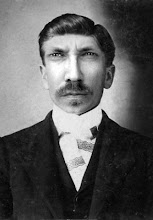
Are you afraid to be a woman?
Cindy and Donna
wear short skirts
Donna lets a boy
put his hand between her
legs as a form of goodbye. Their
house appears to have a beautiful
Frank Lloyd Wright stained glass window,
except up close it’s a dingy kitchen curtain. There’s a bar
by the door; it seems like something
someone saw in a movie. Cindy is 20 and 13 and she’s Donna’s sister.
Their mother does a bad Bette Davis impersonation to music
from the Beverly Hillbillies which tell us early on
that this is a bad family written large
on culture as a mistake, as anal aural, as
bad smell of popular bricolage for
idiots. The family is set of mixed Bourdieu symbols: dad drives
a truck and has a briefcase and listens to
Neal Hefti alone, then country with his friends, then folk or the Monkees, some young people’s music when he watches nudie girl whose fringed g-string indicates
imprecise debate about the value of pubic hair. Hot Flash Racing Pigs, the sign reads behind her.
At his house, the radio comments: “Another riot broke out at Berkeley. . . “ and then Donna
changes the news of raging pubic hair to the kind of music I listen to all the time,
funky instrumental music that I have found no evidence
ever played on any music stations at any time
in history outside of movies. She puts on a shortie nightie. “Oh Cindy, how can you see if you can’t feel if you won’t touch, Cindy?” asks the non-diegetic sensitive boy theme song as she toys with masturbation but remains more appropriately topless moody and contemplative.
At home Mom and Dad are drunk, imitating middle-class people although everything
indicates that they aren’t middle-class or the film uncovers that being middle-class means
you can be trashy and drunk and still say the right words and everyone will just kinda smile
and say, well OK, why not? Still the parents parody bad movie parents so much that even Cindy and Donna are unimpressed. We know they won’t go to college, that everything
matters about their keeping their knees together and, then again, nothing does. I’m thinking that the film is about something serious, about wanting to orgasm in spite of culture, of
finding a routine, a set-up, a way to manage other impulses. Cindy and Donna’s father
takes up an affair with the fringed stripper. She’s a model, independent, and yet her situation seems evidence that masturbating in your bedroom at your dad’s house is maybe the best there is,
so why fight the inevitability?
Donna and Cindy are indistinguishable except that Donna has had sex. The aura of the film only cares for Cindy, it follows her with a Herb Alpert Latin groove versioning of the “Cindy how can you?” to the beach where she and a less attractive friend pick up boys. The music highlights the global imperative for Cindy to find some way to touch, to feel, to see even as all she seems to find is incest and dry-humping. I can imagine women in the audience in 1970 were maybe interested in this the same way my midwestern college students are interested now. When I ask them, so what’s the big deal about sex for teen girls, they look at me vaguely and say, “well, you should go to college instead.”
Cindy and Donna’s parents depart for a convention, all to the Beverly Hillbillies theme even as it’s the time when they seem the most respectable and you almost feel bad for them, what with moody Cindy and all. Donna falls into prurience. She sleeps with boys for drugs, she poses for pornographic photos, she sleeps with her father because ‘it’s just a groove,” mimicking something that fancy Berkeley kids say, I guess. Her scenes are always played out to R&B music in the
classic American warning
that’s a little about going to college
and the like.
It’s maybe half way through the movie and I’m pretty sure that Donna and Cindy’s parents are going to die on the way to their convention.
Cindy’s confusion continues: she’s uptight, her best girl friend says.
They have sex and it seems pretty good for Cindy even if the
whole trip is for hetero-boy-boy viewers. This is maybe the reason Cindy keeps holding
out and why she can’t hold out, what the future looks like from angles shot through her legs, on her back, straddling drugged out boys with nice houses. Her friend is nice, I think, understanding if not particularly helpful.
I’m jealous to find out that Cindy’s parents can afford a swimming pool in the backyard though I must say that everyone in every 70s exploitation film has a pool and they all treat it like it’s nothing, just a groove.
We’ve kind of been waiting for Cindy to put out and she does, predictably, with her sister Donna’s boyfriend. Turns out I was wrong about the parents, they apparently live, although its remains unclear in what capacity. Donna dies after trying to save Cindy from her boyfriend’s bad intentions. Cindy gets our Freudian wish; she’s last seen swinging on a swing set alone and moody. We can see up her dress. I don’t have a lot to say about this film in the same way it’s hard to know about what most teen girls think about sex and the possibilities of college and future.




No comments:
Post a Comment